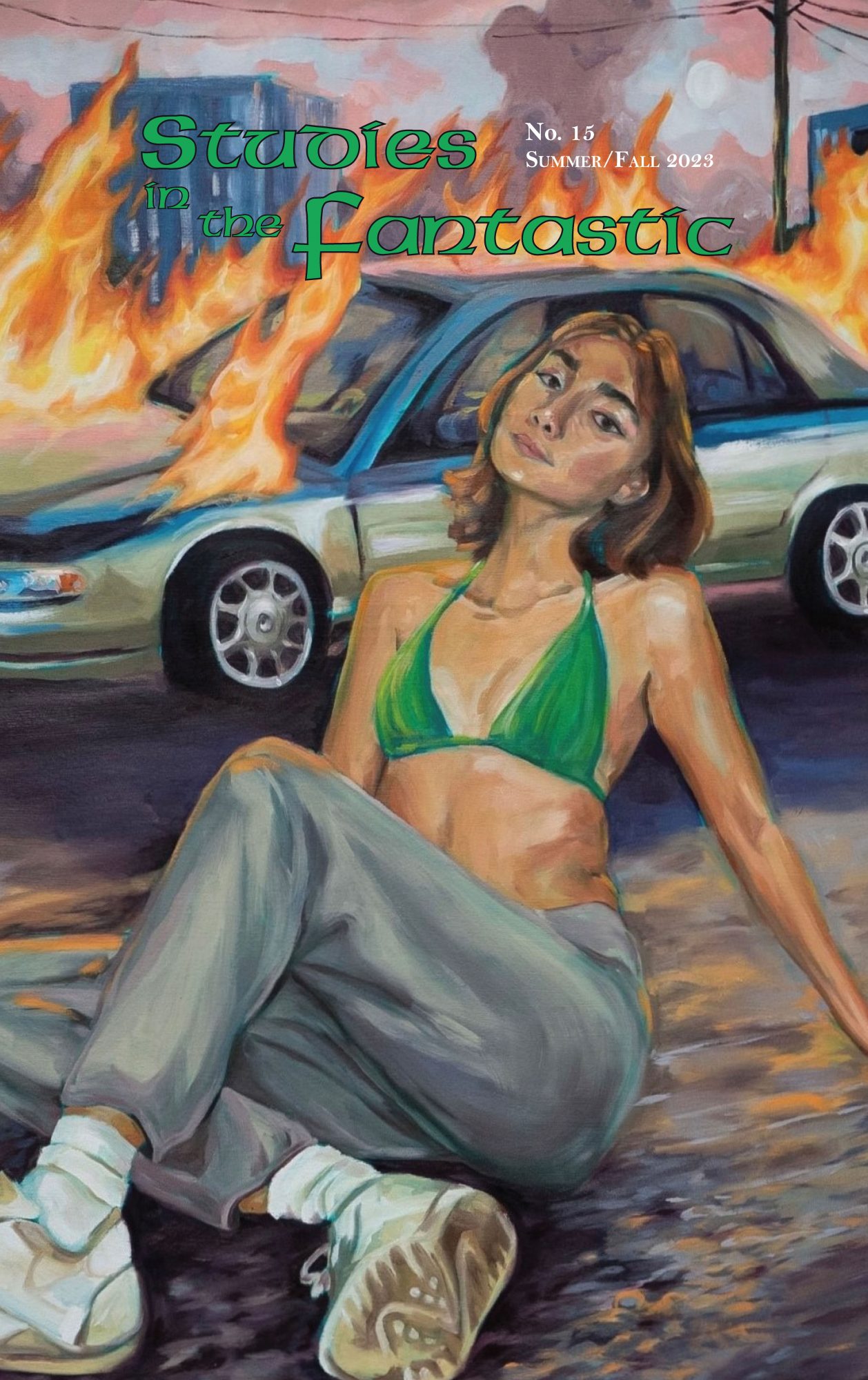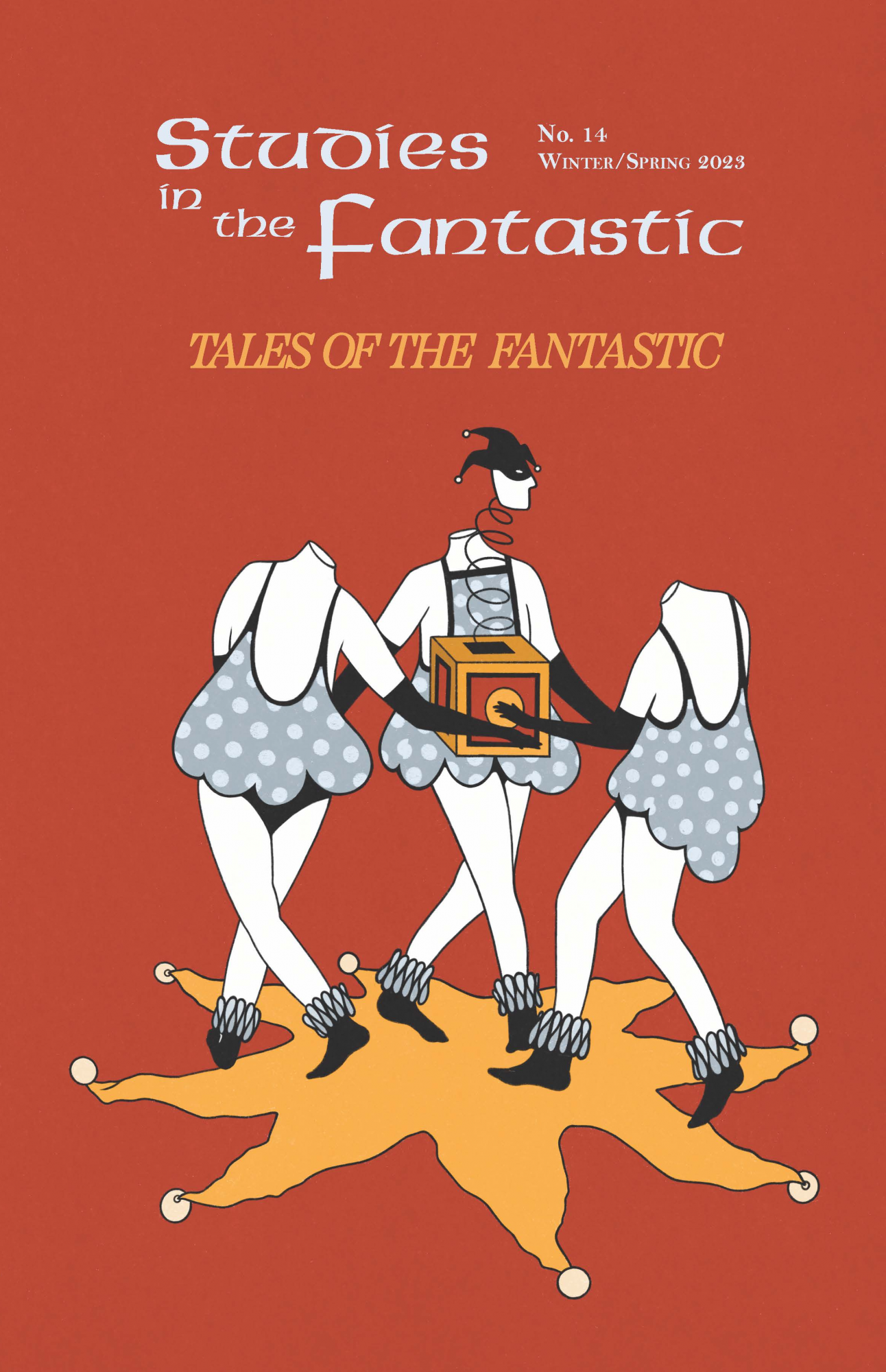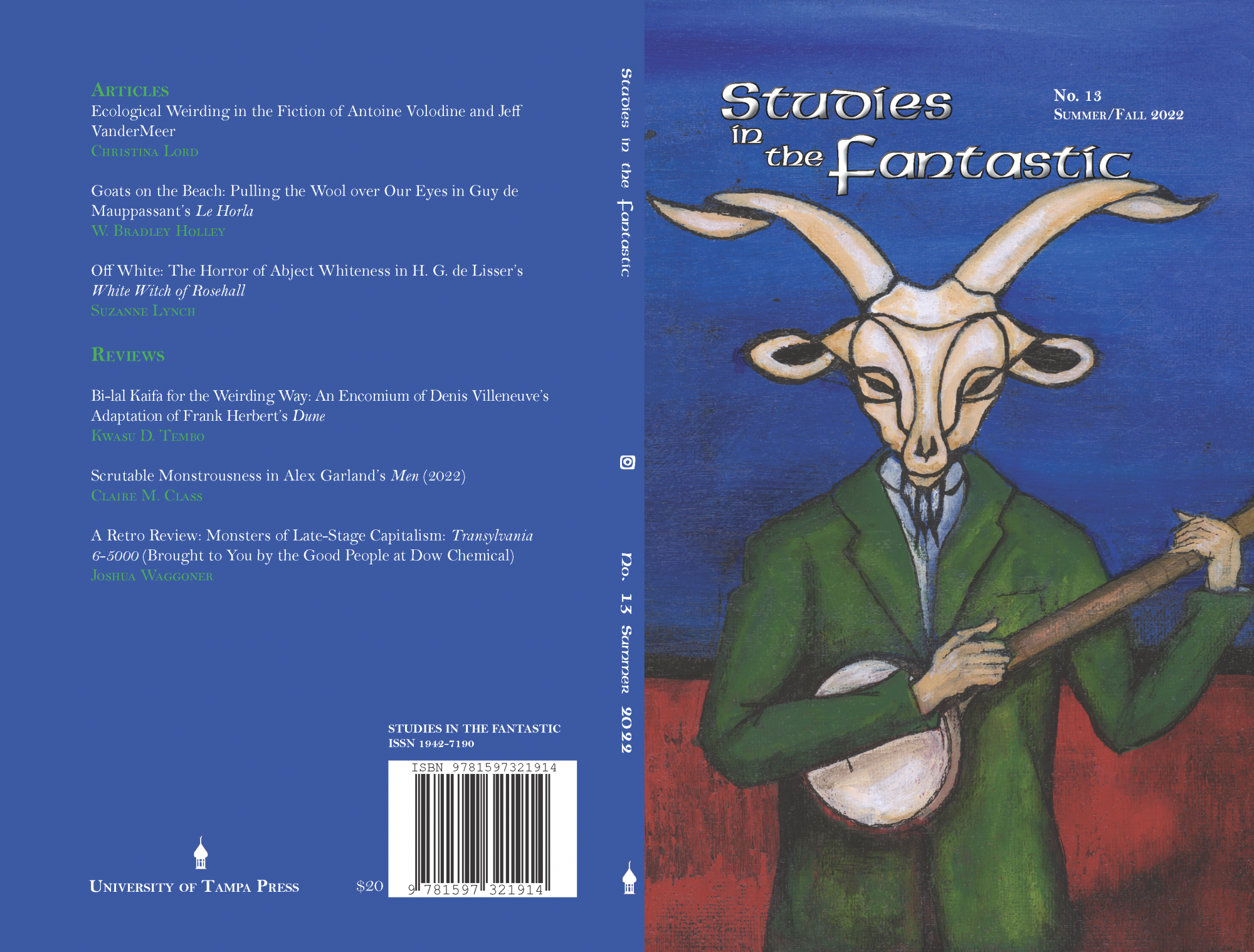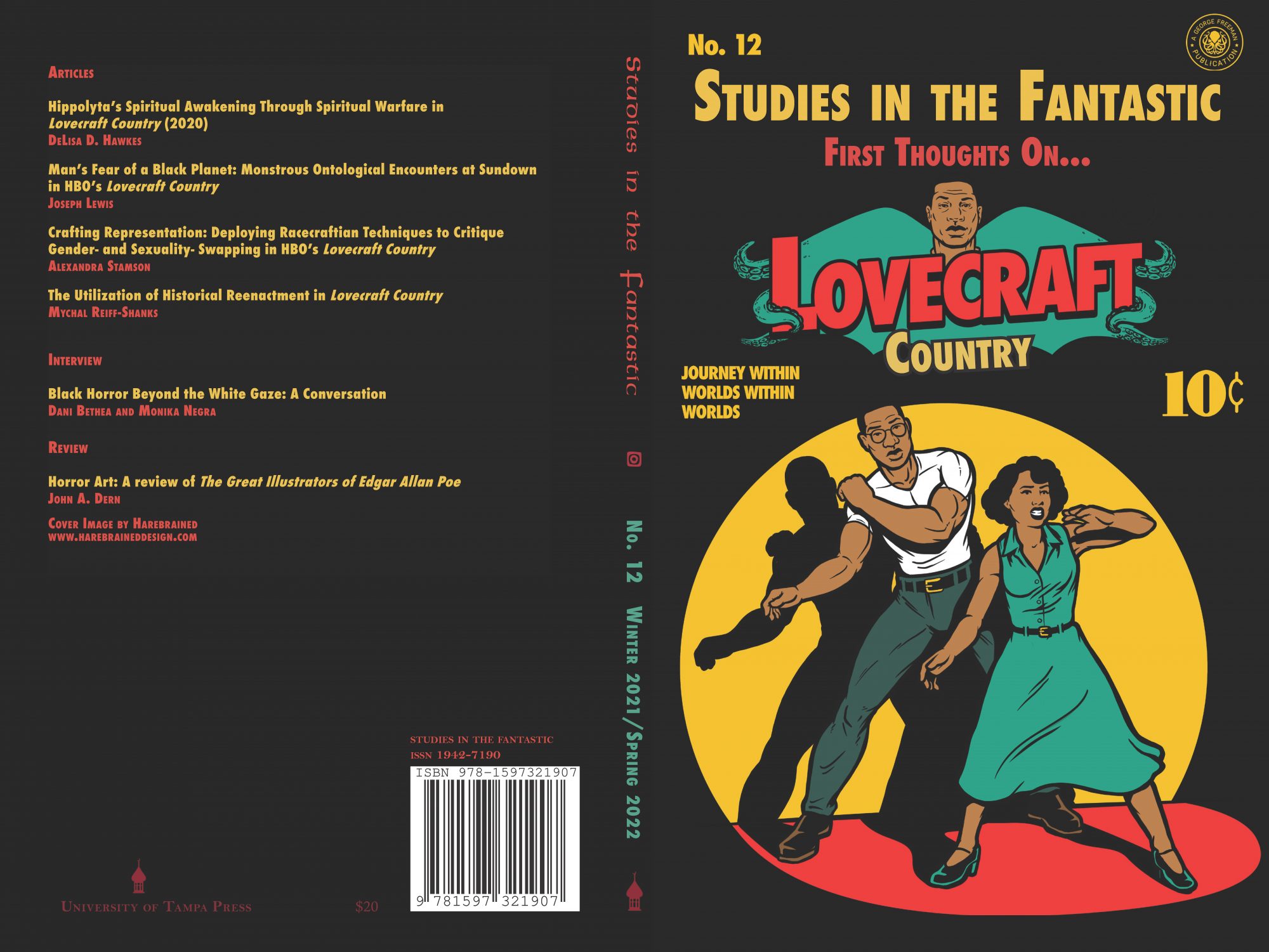
Studies in the Fantastic No. 15
Contents for this issue include “Danger! Do Not Touch: Viral Transmission, Tactile Object Disrecognition, and the Annabelle Series” by Larrie Dudenhoeffer; “From Calvinism to Consumerism: The Persistence of Patriarchy in Robert Eggers’s The Witch (2015) and Anna Biller’s The Love Witch (2016)” by M. Keith Booker and Elisabete Lopes; “Fabricant, It’s What’s for Dinner: Tracing Industrialized Slaughter through Upton Sinclair’s The Jungle, Tillie Olsen’s Yonnondio: From the Thirties, and David Mitchell’s Cloud Atlas” by Stephanie Lance; “Bleeding All over the Shelves and Tracking It Out into the World: Theorizing Horror in the Indigenous North American Novels The Only Good Indians and Empire of Wild” by Hogan D. Schaak; Reviews: “‘You kids have fun’: Bodies Bodies Bodies (2022)” by Eilidh Harrower; “A Retro Review: Black Demons (1991)” by Stefany Stettler; Book Review: “Stephen King’s Fairy Tale (2022)” by Christina Connor.
Studies in the Fantastic No. 14: Tales of the Fantastic
Contents of this issue include “Bubbe, Bubbe, Bubbe, Zayde, Zayde, Zayde” by Jake Wolff, “Bestia Materna” by Jim Krusoe, “Tis the Lord’s work” by Stephen McQuiggan, “Rusalki” by Chrissa Wolfe, “Hit Oort Miss” by C.A. Hume, “Rapture of the Deep” by David Preizler, “America: What Time is Love?” by Satori Good, “Ambergris” by Baxter Burchill, “Origin of a Ghost King” by Juno Post, “Lullaby” by Steve Loiaconi, and interviews with Daryl Gregory and Paul Tremblay.


Studies in the Fantastic No. 13
Contents for this issue include “Ecological Weirding in the Fiction of Antoine Volodine and Jeff VanderMeer” by Christina Lord, “Goats on the Beach: Pulling the Wool over Our Eyes in Guy de Mauppassant’s Le Horla” by W. Bradley Holley, “Off White: The Horror of Abject Whiteness in H. G. de Lisser’s White Witch of Rosehall” by Suzanne Lynch, “Bi-lal Kaifa for the Weirding Way: An Encomium of Denis Villeneuve’s Adaptation of Frank Herbert’s Dune” by Kwasu D. Tembo, “Scrutable Monstrousness in Alex Garland’s Men (2022)” by Claire M. Class, and “A Retro Review: Monsters of Late-Stage Capitalism: Transylvania 6-5000 (Brought to you by the Good People at Dow Chemical)” by Joshua Waggoner.
Studies in the Fantastic No. 12
HBO’s recent series Lovecraft Country takes up the monsters of H. P. Lovecraft’s universe, but flips the script to make the heroes an African-American cast battling various demons in the Jim Crow era. Arguably, the show aimed at a re-appropriation or détournement of the pulp legend’s troubling racism, but critics seem divided on the show’s success. In Dr. Kinitra Brooks’s writings on the series for The Root, she situated it as “a part of the contemporary arts movement that media professor John Jennings coined as ‘Racecraftian,’ inspired by Karen and Barbara Fields in their 2014 book, Racecraft: The Soul of Inequality in American Life.” Therein, racecraft is defined as a practice: racism produces the illusion of race, and Jennings adopted the term (thinking specifically of its homology with Lovecraft’s name) to signify horror narratives that engage with critical race studies for the purpose of dismantling constructions of race. As an adaptation of Lovecraft’s universe, the HBO series would seem to be speaking back to the pulp legend.
Studies in the Fantastic, a journal founded by Lovecraft scholar S.T. Joshi, releases a special issue on the show with an interest in essays that delve into this debate, the works of H.P. Lovecraft, Lovecraft Country, and the Racecraftian turn.

